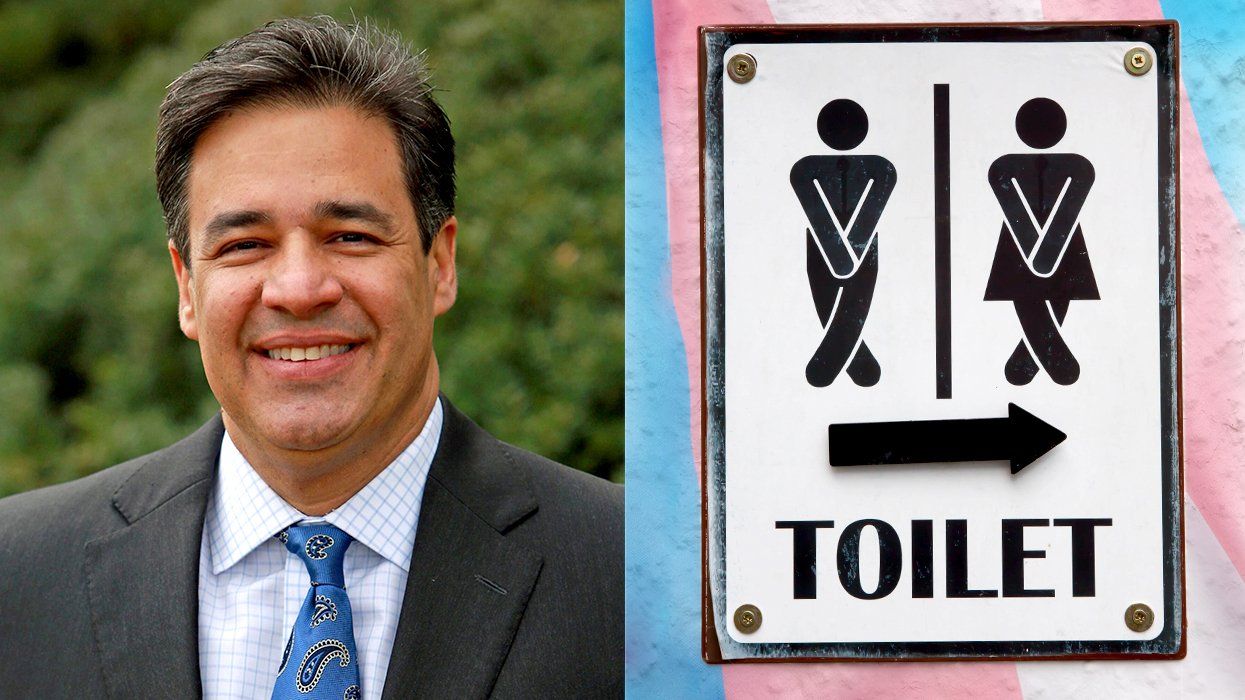A federal judge on Thursday refused to extend his stay on an Idaho law denying trans and gender-nonconforming K-12 students from using multi-occupancy bathrooms, locker rooms, and sleeping facilities aligned with their gender identity.
The law, S.B. 1100, requires schools and districts to base usage of such facilities based upon a student’s biological sex rather than gender and had been challenged by an anonymous 12-year-old transgender girl, the state’s superintendent of public instruction, and a student support group. The law also allows students to sue schools for up to $5,000 for every violation. The law will now take effect next month.
Chief U.S. District Judge David Nye issued a stay on the law in August to better examine the case after both sides provided more evidence to support their claims. On Thursday, Nye declined to extend the stay beyond an additional 21 days, and only then to provide schools and districts the time to ensure their facilities comply with the new law. He found the plaintiffs had failed to provide enough evidence to suggest their case would win at trial.
“For years, transgender students have been able to use restrooms consistent with their gender at many schools across Idaho, without causing harm to anyone else,” “This law was always a solution in search of a problem,” Peter Renn, senior counsel for Lambda Legal who argued the case, said in an emailed statement reported by the Idaho Capital Sun. “The vast majority of courts ruling on similar discriminatory laws have struck them down, and the court’s decision here is an outlier that fails to respect the equal dignity of transgender students.”
“This is a significant win for our office. SB 1100 is a law designed to protect students,” Idaho Attorney General Raúl Labrador said in a statement after the ruling. “Society has separated these intimate facilities for time immemorial, and it is particularly important that the safety and privacy interests of minor students are protected. SB 1100 strikes the necessary balance in protecting those interests for all students.”
Related: Idaho Gov. Signs Anti-Trans 'Bathroom Bill,' Other Anti-LGBTQ+ Legislation
Nye described the case as difficult because both parties sought to “protect important individual rights” while “gender-inclusive policies are constitutional and sex-separate policies are constitutional.” The question before the court, Nye wrote, was what happens when those rights compete rather than co-exist.
The plaintiffs had argued the law was unconstitutional because it violated the Equal Protection Clause of the 14th Amendment, Title IX of the Education Amendments of 1972, and their right to privacy. Idaho argued a similar defense, saying the law did not discriminate against the plaintiffs because the “common sense” law was based on what it termed biological sex. They further argued the law was protecting the privacy of students as well.
“Each of the parties before the Court seeks to protect important individual rights, Nye wrote. “The critical question, however, is what happens when individuals’ rights converge and those rights struggle to co-exist?”
Nye also said “this area of law (and societal policy) is evolving” but that his task was to rule only on the legality of the law after weighing the evidence presented by both sides.
In the end, the court ruled in favor of the state and S.B. 1100 on all three claims.
“The Court, however, must stay in its lane,” Nye wrote. “It cannot provide guidance on how elected officials should navigate these difficult situations. It can only decide whether the action they have taken withstands constitutional scrutiny.”
















